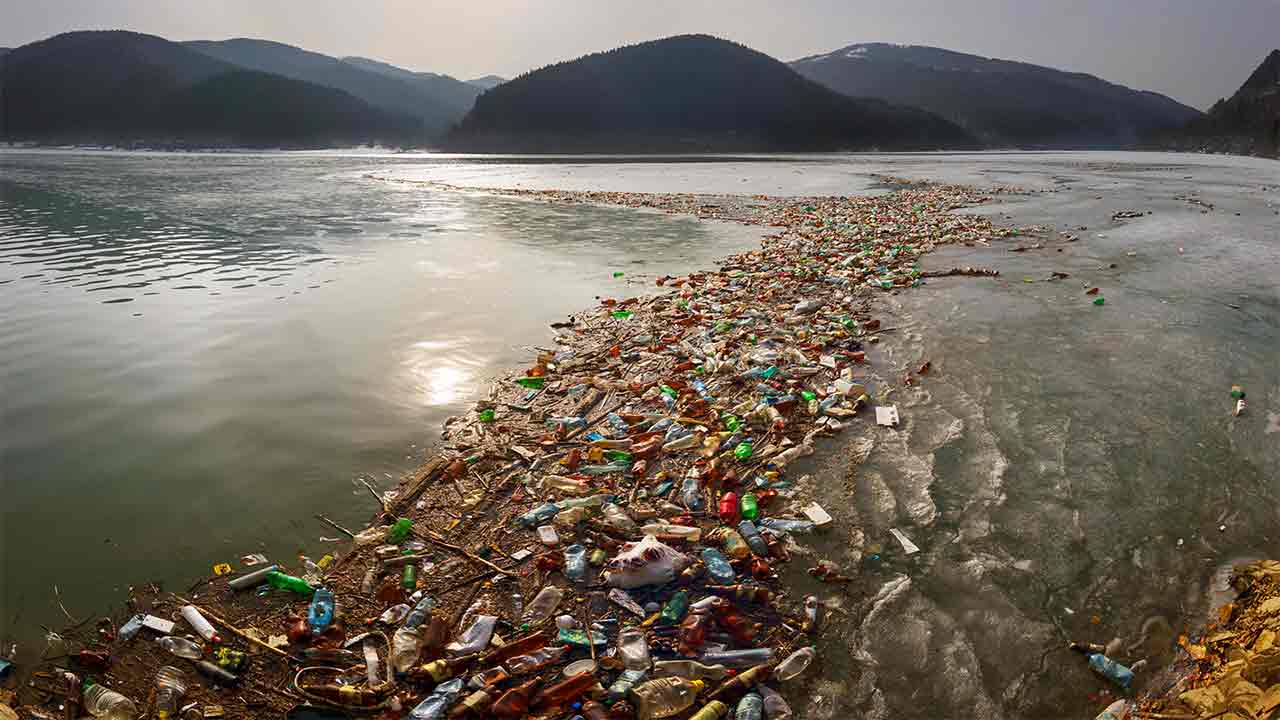Agriculture & Climate Change, Seychelles (Commonwealth Union) – The impact of environmental pollution has often been highlighted with air pollution from one nation moving across international borders in distant location according to the wind directions leading to respiratory trouble in another nation.
New research has demonstrated that the Seychelles and other islands in the western Indian Ocean do not bear any responsibility for most of the plastic pollution accumulating on their beaches.
Instead, Indonesia, India, and Sri Lanka were found to be the main contributors of land-based plastic debris.
The Seychelles was also gathering large proportions of plastic debris of marine origin from fisheries and shipping lanes.
Researchers also indicated that the findings emphasize the urgent requirement for a legally-binding Global Plastics Treaty and greater enforcement of regional policies in lowering plastic waste.
Extensive amounts of plastic debris get collected on beaches across the Seychelles and other small island developing states. Observational analysis indicated that much of this waste was linked to distant sources and not the islands themselves. But until now, the possible sources of this debris were not quantified.
New research led by the University of Oxford evaluated this with the creation of a high-resolution model that simulated the movement of plastic debris across global oceans. Input data was utilized on ocean currents, waves, and winds, and plastic debris going into the ocean from coastal populations, rivers and fisheries, to predict plastic debris accumulation at 27 sites in the Seychelles and across the western Indian ocean. The findings were published in the Marine Pollution Bulletin.
The model by researchers focused on the likely sources of both land-based and marine types of plastic pollution. With many Key findings.
One finding was that Indonesia is the primary contributor to land-based plastic debris seen on beaches in the Seychelles, with significant contributions from India and Sri Lanka.
The plastic debris coming from Indonesia would have been in the ocean for at least 6 months and possibly gone beyond 2 years.
Smaller plastic debris, like millimeter-sized plastic fragments and pellets, may have come from from East Africa and even within the Seychelles itself and minute fragments had less buoyancy than bigger items, which do not move as far prior to sinking.
The Seychelles also gathers large amounts of plastic debris of marine origin from fisheries and shipping lanes, which include discarded or lost fishing gear. Larger quantities of bottles beaching at these islands with labels indicating origins from Malaysia, Thailand and, in particular, China, that may have been discarded from ships instead of arriving from those countries directly. For certain islands, a significantly larger amount of plastic waste arrived from marine sources and not land.
Rates of plastic debris collection indicated a significant seasonal affect. Plastic debris from both land and marine sources had a higher likelihood of landing on beaches in the Seychelles as the northwest monsoon ends, with the most increased rates during March and April.
Plastic debris accumulation could also be enhanced by El Niño–Southern Oscillation and Indian Ocean Dipole occurrences.
Lead author of the current research, Noam Vogt-Vincent of the Department of Earth Sciences, University of Oxford says “We have combined observational data from across the Seychelles with cutting-edge computer simulations to generate the most comprehensive predictions currently available for marine litter dispersal in the region. This will provide vital information for local management on these islands – many of which are global biodiversity hotspots – and to inform national and international responses.”
“These islands are faced with the deeply inequitable situation of bearing the costs of removing waste they were not responsible for generating, contrary to the “polluter pays” principle. Our study has demonstrated that most of the plastic debris accumulating at these remote islands comes from far-off sources, and this should be the first positive step towards accountability and prevention,” explained Co-author Dr April Burt of the Seychelles Islands Foundation and University of Oxford.







